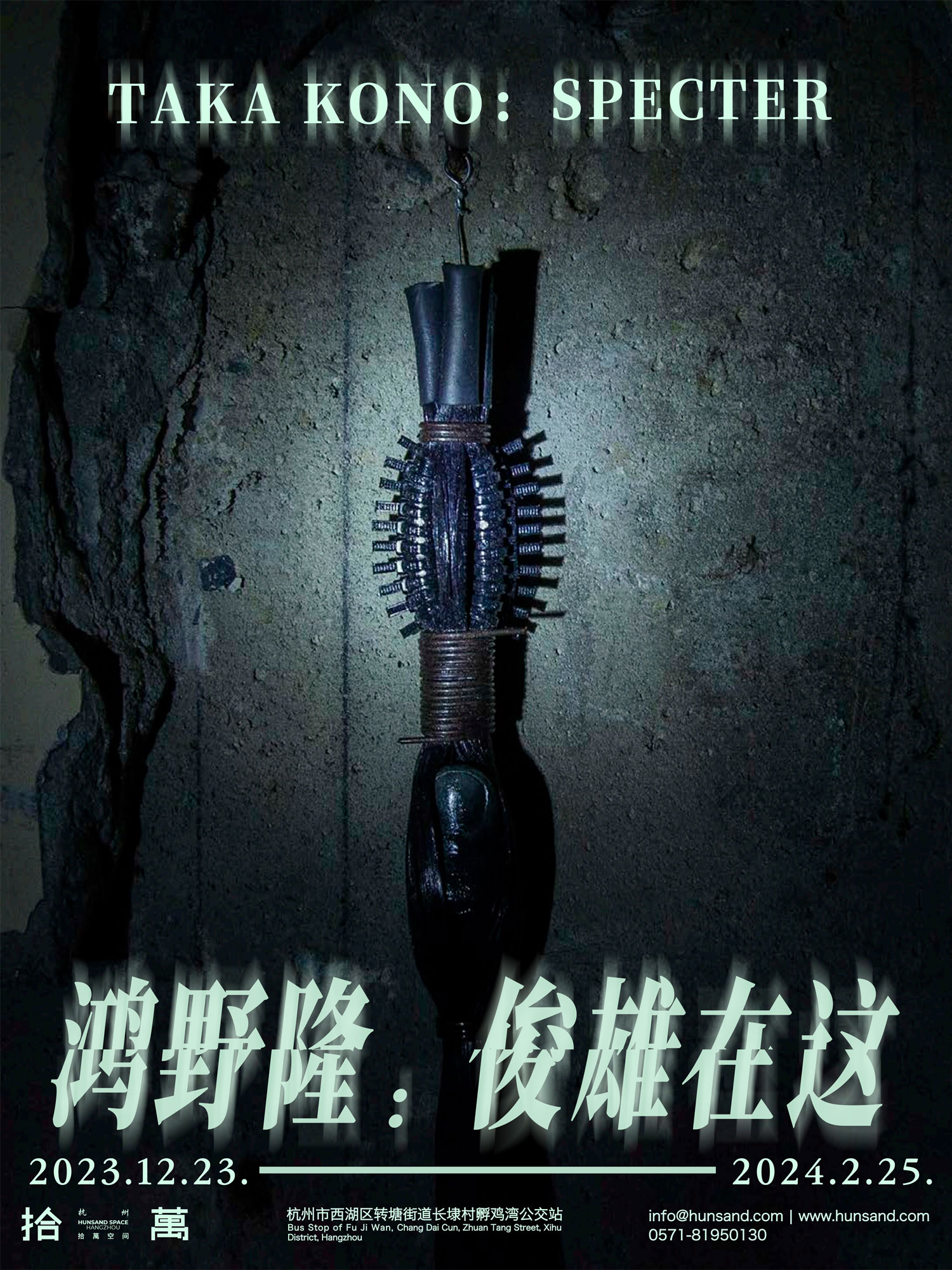展期 Period:
2023.12.23—2024.2.25
艺术家 Artist:
地点 Venue:
新闻稿 Press Release:
拾萬空间(杭州)非常荣幸地带来日本艺术家Taka Kono(鸿野隆)的首个中国个展。展览名称源自艺术家2021年在美国新泽西darkZone空间所做的一件墙面喷字作品:《俊雄was here》。“俊雄”是日本著名恐怖电影《咒怨》中的男童,Taka以此牵连出自己对于鬼怪和神魂的关注,本质上是对现实中无力感的一种浪漫化回应。
对于恐怖,日光下的人们往往避而不谈。我们靠近光亮、温暖、轻柔、愉悦,在不断自我满足的舒适之中追求生命永恒的绵延。技术的高度发展一度使人意满形忘,忽略曾经的历劫,忘却舒适不过是被人类中心照亮的窄路与偶发状态。病毒与战争却再次提醒,幽玄天地间,于人类而言,黑暗、寒冷、冲突、恐惧,以及幽深难测的不确定性才是广袤与常态。
从妖怪画的百鬼夜行到能剧中的神魔鬼畜,从电影里的各种怨灵再到东京奥运会开幕中森山未来的舞蹈,日本艺术对灵魂与恐怖的思考与探索始终没有间断。Taka近年的作品一直在探索恐怖与亲密的交接点,用他的话来说,鬼魂的存在是件浪漫的事。话语中隐藏的前置背景交错着人类的孤独和科学理性光芒下可知世界的绝对统一。Taka对恐怖的构筑,要求的是直面恐怖,直面经验之外的一切不确定的未知之物。当未知侵入私密环境,直观的感官刺激迫使我们面对现实,回到并参与那个经常被回避的对话,意识到人类生存的流动性和时常出现的不安状态。
欢迎进入“俊雄” 的灵幻世界。
Hunsand Space (Hangzhou) is delighted to present the first solo exhibition in China by Japanese artist Taka Kono. The exhibition's title originates from a wall-spray piece the artist created in 2021 at the darkZone space in New Jersey, USA: "俊雄 was here." "俊雄"(Toshio)refers to a character from the famous Japanese horror film "Ju-on," and Taka explores his fascination with ghosts and spirits, essentially providing a romantic response to the feeling of powerlessness in reality.
When it comes to horror, people often avoid discussing it in broad daylight. We gravitate toward brightness, warmth, softness, and pleasure, pursuing the eternal continuity of life within the constant self-indulgence of comfort. The high development of technology has led to complacency, ignoring past tribulations, forgetting that comfort is only a narrow path and a transient state illuminated by human-centric perspectives. Viruses and wars serve as reminders; in the mysterious world, darkness, coldness, conflicts, fear, and the profound uncertainty are the vast and normal constants for humanity.
From the "Hyakki Yagyō" in yokai paintings to gods and demons in Noh plays, from various vengeful spirits in movies to the dance of the future depicted by Mirai Moriyama in the opening ceremony of the Tokyo Olympics, Japanese art has continuously explored and contemplated the soul and terror. Taka's recent works have been exploring the intersection of horror and intimacy. In his words, the existence of ghosts is a romantic affair. The interwoven background in his discourse reveals the loneliness of humans and the absolute unity of the world known under the radiant light of scientific rationality. Taka's construction of horror demands facing it, facing everything unknown beyond experience. When the unknown invades our intimate spaces, direct sensory stimuli compel us to confront reality, to return to and engage in that conversation often avoided, recognizing the fluidity of human existence and the frequently occurring state of unrest.

